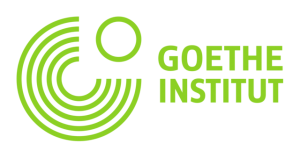
Goethe Certificate
What’s on the Test?
 Goethe Certificate, Goethe without exams, goethe zertifikat b2, goethe institut The Goethe-Institut offers eight exams in total.
Goethe Certificate, Goethe without exams, goethe zertifikat b2, goethe institut The Goethe-Institut offers eight exams in total.
Two of them, the TestDAF and the Goethe-Test PRO aren’t as commonly taken and they’re a little bit more niche in their application.
The other six—the Goethe-Zertifikat tests—are broken down into six levels of language ability.
I’ll go into the levels in a little bit more detail later on. The test format itself is just about the same for all levels (though the advanced tests take longer).
Luckily, the Goethe-Institut offers lots of helpful practice materials right on their website.
Reading, Goethe Certificate
The Goethe-Zertifikat will have texts for you to read along with comprehension questions that may come in different formats.
For example, you might read an article from a newspaper. Then you’ll read a short summary and have to fill in missing words in the summary.
This fill-in-missing-words type of question is relatively common in advanced levels. It tests not only your comprehension of the article but also your ability to predict what other words might be. Goethe without exams
Writing
such as text messages, forum posts or emails. The fill-in-the-blank exercises will make a comeback here too.
The writing section for advanced tests will definitely involve a short essay of around 200 words,
usually describing a graph or diagram.
You’ll have the ability to choose between a few prompts to select the one you feel most comfortable with. And here you may be in for a shock—it has to be written freehand!
Listening
The listening section at lower levels is again geared more toward everyday communication. You’ll hear short phone messages or announcements about plans, scheduling and transit and answer some questions about their contents.
At the higher levels, you’ll hear people lecturing or debating and then have to answer questions about their viewpoints.
details. Some of the recordings will be repeated, others won’t. The length of this section and the audio clips will vary depending on what level you’re at. goethe zertifikat b2
Speaking
The speaking section comes last, which makes for a real test of endurance. Fortunately, the speaking part is only about 10 to 15 minutes long at the longest. Goethe without exams
What Does Each Goethe-Zertifikat Level Cover?
The Goethe-Zertifikat levels correspond to the proficiency levels outlined in the Common European Framework of Reference for Languages, so you’ve got A1 and A2 (beginner), B1 and B2 (intermediate) and C1 and C2 (advanced). These increase in difficulty quite rapidly as you go on. Goethe Certificate
A1-A2 Goethe-Zertifikat:
Are You Ready for It?
The A levels are designed for people with between 100 and 300 hours of German study time, though of course that figure is different for everyone. goethe zertifikat b2
An A1 speaker is pretty limited by most people’s definition. They stick to a lot of pre-rehearsed language and memorized phrases. They might be able to read and write simple personal information on a form and understand someone speaking very slowly and clearly, but they really just know enough to get by.
A2 speakers are beginning to communicate more independently. They’ll likely be able to recognize most of the spoken and written language related to their daily activities.
When speaking, they can go slightly beyond memorized phrases to describe themselves, the people they know and what they do or don’t like to do. Goethe without exams
Where It Gets You:
B1-B2 Goethe-Zertifikat, Goethe Certificate
B1 speakers are excellent tourists. They can comfortably handle pretty much any travel situation as it arises spontaneously.
They can read and write straightforward texts about familiar topics. It may still be too hard to comprehend native German movies or TV, but when speaking with others they can usually get by in conversation with some pauses and fumbling.
B2 is where it starts getting good. A strong B2 speaker would be regarded as “fluent” by most people. They have few comprehension problems in general, though on unfamiliar topics they might need the other person to slow down or repeat a few things.
They can speak accurately and at length on topics they’re knowledgeable about and have little trouble preparing and delivering presentations or brief written reports. goethe zertifikat b2
Where It Gets You:
Since B-level speakers can usually do all right living in Germany, the minimum language requirement for German universities and jobs is often B1 or B2. Goethe without exams
Some B1 candidates are eligible for admission to university with the stipulation that they take a short preparatory course first.
C1-C2 Goethe-Zertifikat:
Are You Ready for It? Goethe Certificate
The difference between C1 and C2 speakers is mainly in how comfortable they are with nuances of meaning and dealing with what they don’t know. Goethe without exams
C1 speakers speak fluently, but they may have to use circumlocution more often, like saying “the type of vegetable that grows underground” instead of “root vegetable.” Goethe Certificate
C2 speakers have extremely large vocabularies numbering in the tens of thousands, covering well-known cultural references, and if they don’t know the precise word for what they mean they can usually get pretty close with a related synonym.
Note that this doesn’t mean that they have to always speak at the same level as a native. That type of overall mastery is rare and actually requires decades of work. Goethe Certificate
Where It Gets You:
A C1 certificate is enough for application to the strictest university programs taught entirely in German, as well as for those intending to work in the medical field.
A C2 certificate enables you to teach in the German school system, teach German abroad and begin a journey as a professional interpreter or translator. goethe zertifikat b2
